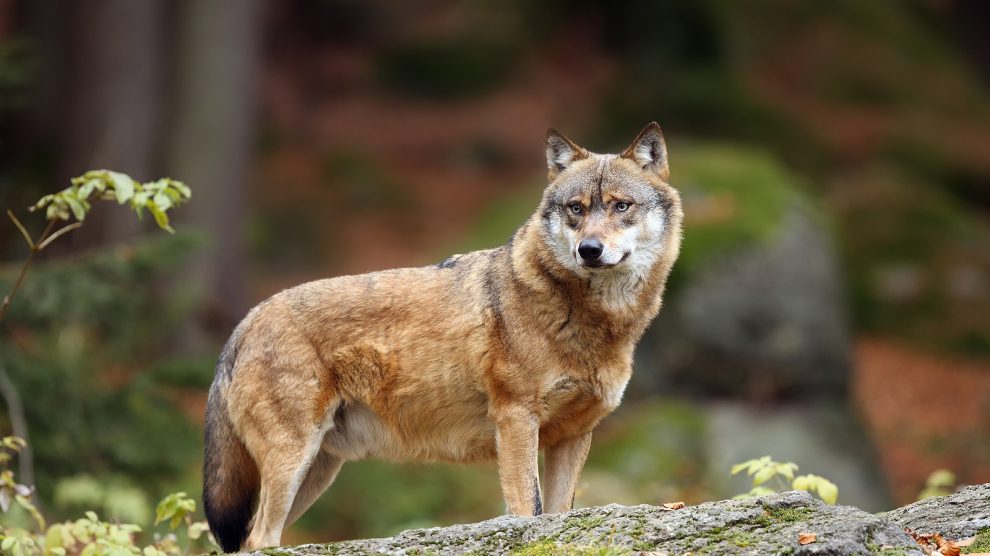The wolf is set to become a fully protected species in Slovakia after the country implemented a total ban on hunting.
The hunting of wolves will be illegal in Slovakia from June 1, after the country finally adopted new rules that bring it into line with European Union guidelines.
- Why was an Austrian prince allowed to kill Romania’s largest bear?
- Romania bans fishing and sale of wild sturgeon indefinitely
- The European bison is no longer a vulnerable species
A European Commission infringement process was launched against Slovakia in 2013 for breaching a directive on the conservation of natural habitats and of wild fauna and flora. While this resulted in a wolf hunting ban in Natura 2000 sites, wolves in other areas were not protected: hunters in Slovakia have therefore legally killed almost 1,800 wolves since 2000.
In addition to legal hunting, wolves are also endangered by poachers.
“Wolves, as top predators, play a vital role in keeping nature in balance,” says Jerguš Tesák, large carnivore expert at the World Wildlife Fund (WWF) Slovakia, one of many environmental NGOs which has long campaigned for a ban.
“If we really want to protect wolves, we must protect them along with their habitats and movement routes. We have record numbers of deer or wild game at the moment, but a healthy wolf population also has a positive impact on the landscape. It reduces the population of deer, prevents damage of young trees and supports restoration of natural forests. There is no reason for wolf hunting in our country.”
The Danube-Carpathian region – also known as the Green Heart of Europe – is home to some two-thirds of Europe’s populations of large carnivores, including brown bears, wolves and lynx. There are now approximately 12,000 wolves in Europe (excluding Russia), of which 1,000-1,800 are found in Slovakia. For the 2020-21 hunting season, Slovakia’s Ministry of Agriculture approved the hunting of 50 wolves.
Last week, one of Europe’s largest bears was killed – possibly illegally – by hunters in Romania.
Shrinkage of habitat
These ecologically critical, strictly protected and culturally significant mammals are threatened not only by legal and illegal hunting, but also by increasing fragmentation and shrinkage of their habitats brought about by the construction of roads and other infrastructure.
However, despite such fierce challenges, in recent years large carnivore populations, particularly wolves, have expanded both within Central and Eastern Europe and to other parts of the continent – often putting them into closer proximity with humans and leading to new challenges.
‘We must halt and reverse biodiversity and habitat loss by 2030,” adds Miroslava Plassmann, CEO of WWF-Slovakia. “Within this framework, we concentrate on protecting the natural habitats of large carnivores including their ecological corridors, avoiding unsustainable management practices, improving connectivity at the landscape level, reducing illegal killing, improving large carnivore-human co-existence and reducing conflict, and promoting sustainable use of natural resources.”
Slovakia already provides compensation payments to farmers for losses from wolf attacks. New legislation is now being discussed and reviewed by the farming community which will address their call for more effective and simplified compensation procedures.
Unlike many news and information platforms, Emerging Europe is free to read, and always will be. There is no paywall here. We are independent, not affiliated with nor representing any political party or business organisation. We want the very best for emerging Europe, nothing more, nothing less. Your support will help us continue to spread the word about this amazing region.
You can contribute here. Thank you.



